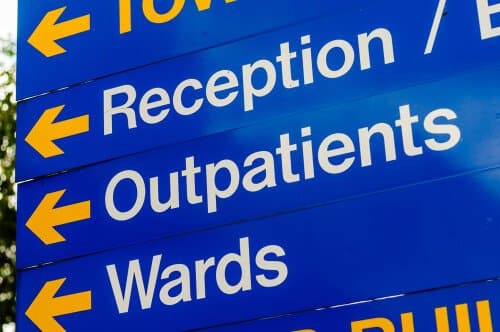Suboxone and Alcohol

Suboxone is prescribed to treat opioid dependence, acute or chronic pain.
In most cases, the drug helps to overcome addiction and avoid relapse after treatment.
Sadly, suboxone users mix the prescribed medication with alcohol, trying to reach the same high as the opioid agonist.
Mixing Suboxone with alcohol is extremely dangerous; this fatal mix is known for causing breathing problems.
If you are taking Suboxone, please be aware that even one drink is not worth the risk during your treatment. Beer, wine or liquor mixed with Suboxone risk your health, disrupt the treatment process and keep the reward pathways to the brain open. If you are mixing other substances of abuse while on Suboxone, you may need to seek treatment. New Jersey has plenty of treatment options whether in Mendham, or Manalapan, or Colts Neck, or Bedminster, or Morristown, or Westfield or Clark, or Somerset, or Ridgewood, or Upper Saddle River, or Atlantic Highlands, or Red Bank, or Rumson, Or New Brunswick.
What is Suboxone?
Suboxone is a brand name for a combination of opioid agonist buprenorphine and opioid antagonist naloxone. The medication is used to treat opioid abuse and withdrawal. Buprenorphine replaces the addictive opioids to components that work on the same brain receptors. While buprenorphine reduces craving and soothes withdrawal symptoms, naloxone prevents drug abuse at high dosages.
Because buprenorphine is an opioid agonist, weaker then opioids such as oxycodone and heroin, it can still cause and euphoria, especially when mixed with alcohol. The presence of alcohol increases the capacity of buprenorphine to act as a full opioid agonist, with similar addiction signs and overdose risks.
Dangers of Mixing Suboxone and Alcohol
It’s risky to mix Suboxone with other drugs, but alcohol is particularly harmful. Alcohol is the most abused drug in the United States. When consumed on its own beyond recreational usage, the following risks may arise:
- Nausea and vomiting
- Lack of coordination
- Poor judgment
- Confusion
- Irregular breathing
- Seizures and hypothermia (in overdose cases)
Suboxone abuse has also common side effects such as numbness, dizziness, stomach, and sleeping problems. When alcohol is added to the mixture, symptoms become more severe including pain, upset stomach, and moving difficulty. The most dangerous symptom is slow breathing. In extreme cases, breathing can stop completely and even result in death.
Acting similarly to antidepressants, such as Xanax and Klonopin or sedative-hypnotics like Ambien and Lunesta, buprenorphine slows down the nervous system. When it’s mixed with alcohol, which also depresses the nervous system, dangerous relaxation effects breathing and heartbeat rates.
Long Term Health Problems:
Beyond the short-term risks, Suboxone and Alcohol abuse have also serious long-term effects on health. Destructive damage takes a toll on the body:
- High blood pressure
- Cardiomyopathy – stretching, and drooping of the heart muscles
- Stroke danger
- Liver damage and failure
- Brain damage
- Stomach and digestion harm
- Cancer (mouth, throat, liver, stomach, breasts, and bowel…)
Suboxone and Alcohol Overdose Poisoning Risks:
When alcohol is mixed with antidepressant drugs, liver damage is the most common risk after slow breathing. Together, alcohol and drugs, increase the chance of liver failure. People develop stomach pain and internal bleeding, fluids in the abdomen, and jaundice (known as icterus, yellowish pigmentation of the skin and whites of the eyes.) Buprenorphine in large doses has the same overdosing risks as full opioid agonists, such as heroin. Be aware of overdose symptoms such as vomiting, unconsciousness, depressed breathing and pinpoint pupils.
If you or your loved one experience one of Suboxone abuse symptoms, that doesn’t require emergency treatment, please don’t hesitate to ask for our help. At the Center for Network Therapy, we are dedicated to helping people recover from prescription medication and alcohol abuse. We encourage you to admit for treatment and return to your family, workplace, and community as soon as possible.
Safe Suboxone Withdrawal
Overcoming addiction to Suboxone and alcohol is difficult without professional help. Especially for individuals who are prescribed with Suboxone as a replacement drug for opioid addiction. Usually, when a person abuses addictive substances, he or she also used to the misuse of alcohol. Suboxone can trigger strong opioid cravings when consumed with alcohol. Not only that drinking alcohol is counterproductive during the rehabilitation process, but also long-term health issues develop with time.
Medical and psychological support is needed to overcome withdrawal symptoms and to prevent relapse after treatment. Intensive outpatient program is the most ideal setting for medical opioid abuse. Outpatient detoxification and rehabilitation programs deliver better outcomes because they incorporate the patient’s living environment into treatment from day one. Call one of our treatment experts today to learn about the most suitable outpatient program for your personal needs.
Treatment is available no matter which county in New Jersey you reside in: Morris, Monmouth, Somerset, Ocean, Camden, Monmouth, Essex, or Union.
Related Articles
Exploring Optimal Approaches to Treat Addiction to Alcohol or Drugs





